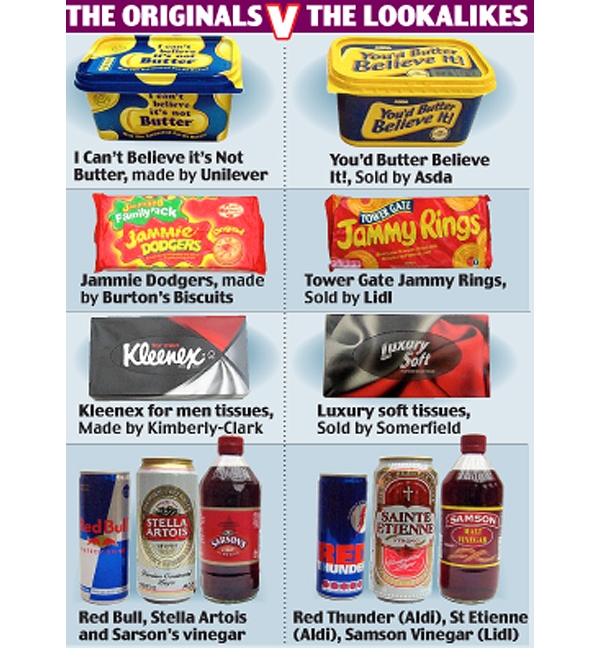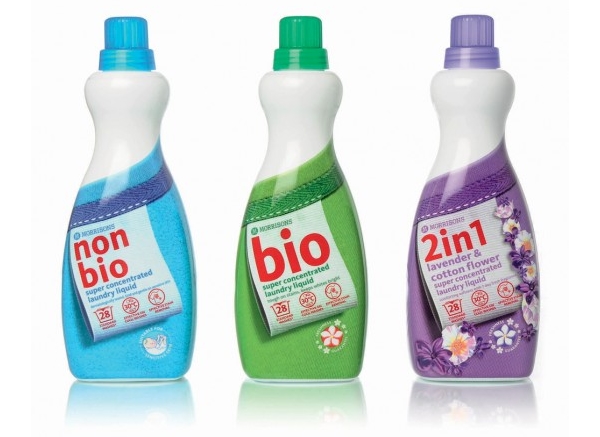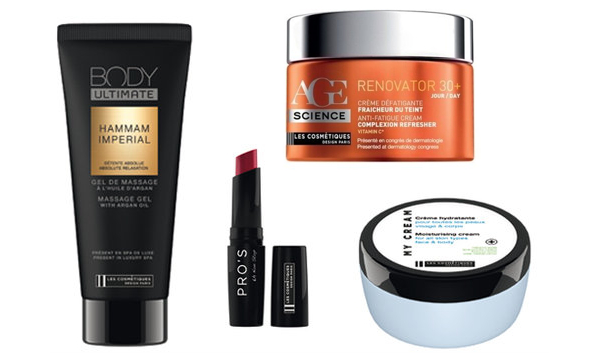Category: Private Label
Consumer & Retail Incubator & Accelerator

I am a big fan of consumer products and retail concepts and this is what I do for living. I was trying lately to find any incubator and/or accelerator related to those industries in this part of the world (Levant & MENA) but unfortunately I came across so many of them who are only focused on technology startups and only technology and some of them also have a restricted geographic region they do cover.
I was kind of disappointed seeing no one is interested in “offline” consumer and retail (except if you are an online or e-commerce oriented). A very big industry and sector that touch the lives of millions if not billions worldwide but investors most probably prefer the fast bucks lane and are in continuous search for the next Facebook or Uber.
I would like to launch a consumer & retail oriented incubator and accelerator with no geographic restrictions, but looking for people sharing the same vision and dream to build it together.
If you are a consumer and retail incubator and accelerator that I missed finding in a way or another, please get in touch.
if you are a consumer and retail passionate, let’s do this together.
Private Label Gains in Value in Poland
 According to estimations included in the PMR report entitled “Private label in Poland 2012. Market analysis and development forecasts for 2012-2014”, the value of the private label market increased by 18%, thus reaching almost PLN 29bn (€7bn) in 2011.
According to estimations included in the PMR report entitled “Private label in Poland 2012. Market analysis and development forecasts for 2012-2014”, the value of the private label market increased by 18%, thus reaching almost PLN 29bn (€7bn) in 2011.
The high growth rate of the market in 2011 was the result of a significant sales value growth in supermarkets and discount stores, which reached 20% in both channels. As a result, both these formats expanded their market share. Hypermarket sales also developed intensively last year, although at a lower rate than the year before (18%). Traditional trade increased at a rate much below the market level.
Source: Poland Forum on Linked
My comment:
” When i look at the growth curve on the document, i believe and IMO after 2009 and 2010 the major retail players in Poland noticed and started being aware that if they don’t handle the private label products properly, it will hurt their business instead of growing it and here i am not talking about the Hard-Discounters who on a separate note started introducing national brands in their assortments in Germany and France lately.
Poland is and will become more and more a very attractive place for supermarket retailers in all format, and i always wondered why this country and its consumers are so receptive in this industry.
Major retailers are squeezing their assortments and throwing out more and more SKUs with slow rotation to replace them and give more chance and shelf space to their private labels in the same category with higher margins and faster rotation, no matter what was the cost of introducing that branded product on the shelf initially, when the buyer is squeezed for margins by his management, he is squeezing the suppliers and i had to go thru this with 2 retailers in Poland, Carrefour and REAL. I also feel that Carrefour is becoming a Soft-Discounter and trying to compete as being the “every day low price” store.
Another game the retailers are now playing are the private label brands themselves, lately the retailers tried also to skip showing their store brand name on the packages and started developing their “own but not store brand” different names as they are aware some consumers/customers are very sensitive to this issue.
One more game played by the biggest hard discounter in Poland, Biedronka, who in my opinion is taking the hard discount industry by storm in Poland and giving hard time to Lidl, Aldi, Netto and all the rest, is to introduce a product under any given brand, not necessarily a known brand and test it in its stores, if things start rolling in 3-6-12 months (depending on the product category) then the supplier should start switching his brand to Biedronka’s brand and keep on supplying.
I negotiated for more than 1 year and it is quite tough to list 1 single product in 1600 stores (Biedronka stores number at that time)So yes, i totally agree that private label in Poland still has plenty of room to grow and only few major brands will survive this odyssey! “
You can also read: How smart are Polish shoppers?
Europe’s Private Label Brands Growth
 While retailers’ own brands continue to help cash-strapped consumers across Europe reduce the cost of their weekly shop, national brands are fighting hard to protect their share of the market, reveals a report launched today by grocery market measurement and consultancy firm SymphonyIRI Group.
While retailers’ own brands continue to help cash-strapped consumers across Europe reduce the cost of their weekly shop, national brands are fighting hard to protect their share of the market, reveals a report launched today by grocery market measurement and consultancy firm SymphonyIRI Group.
The report – Private Label in Europe 2012 – shows that retailers’ Private Label (PL) share is still rising across Europe with an average value share of 35.6% and a unit share of 45.1%. The highest country value share is in the UK at 50.5%.
In Greece, PL has doubled its market share by value over the last five years to 14.3%. Even in France, where shoppers are less price-sensitive and national brands (NB) are still driving value sales growth in almost every category, consumers are beginning to switch to PL in larger numbers. An increase of 0.2% drives the value share of PL in France to 30.0%. Germany, with its strong economy, is the only country where NB are also driving unit sales. Although in other countries, PL sales are down in certain categories.
The way PL is perceived by shoppers has changed. The quality, variety and range of products is improving, retailers are awarding PL more prominence in-store to secure greater margins at the expense of small and mid-ranking NB, and they are spending more on marketing to reiterate that buying PL does not mean compromising on quality. Persuaded by these arguments, consumers are becoming less brand conscious, which is impacting loyalty – in Italy, for instance, 57% of shoppers now change their brand ‘very often’, up from just 16% in 2004.
Manufacturers are responding to the continued growth of PL with clever promotion and pricing strategies, the re-engineering of lines and the launch of new variants. They are also spending more time developing and adjusting their portfolio and how they approach individual retail chains.
So despite the progress of PL, NB is still influential in many categories, often acting as category ‘sponsors’ and ‘signposts’ to tempt shoppers. However PL is responsible for a disproportionate share of growth in relation to its share of the market: in Italy, for instance, PL makes up almost 17% of total sales but was responsible for 40% of the value growth in the market.
“We are seeing dynamic change in what is already the most mature PL market in the world,” said Rod Street, Executive Vice President of International Consulting at SymphonyIRI Group. “However, almost all shoppers will continue to fill their shopping baskets with a mix of PL and brands. As a result in many categories PL could reach a ceiling regardless of how far retailers promote it.”
He continues: “Growth can only come if retailers and FMCG manufacturers have a deep understanding of what makes the grocery shopper tick, and are brave about innovation, which will be crucial to driving sales. Food manufacturers in particular need to review their brand propositions for saliency and value in the face of continued pressure on shoppers. This means working in partnership to analyse and act on shopper behaviour, market insights and trends.”
The report explores current and emerging private label trends across Europe. It looks at key indicators such as the value and volume share of private label as well as the price and promotions pressure for FMCG products across seven European countries (France, Italy, Spain, the United Kingdom, Germany, the Netherlands and Greece). It covers grocery sales for the year ended 16 June 2012.

Key highlights from the report include:
Source: SymphonyIRI Group & International Supermarkets News.
Carrefour & Les Cosmétiques Design Paris
Carrefour, the French retailer, has unveiled its new private label range of beauty products, which will be launched worldwide this year.
Under the name “Les Cosmétiques Design Paris” the brand includes: toiletries, facial care, anti-aging products, haircare and make-up.? With about 650 SKUs, 20 of them organic-certified, and prices ranging from 1 to 12 euros, the new private brand will replace Carrefour’s existing offerings.
The launch will begin in France with make-up in March, followed by skin and hair care products and toiletries in May.?
Les Cosmétiques Design Paris will hit Carrefour stores in Italy, Spain and Belgium by the end of the year, before reaching Asia and South America in 2013 and 2014.
Copycat Brands Face EU Scrutiny
Hypermarkets, supermarkets and other format retailers that produce private label products that resemble established brands and their respective products, will face closer scrutiny and potential financial penalties after a European Commission report accuses them of “parasitic copying”.
Investigations in 27 member states and 6 nations had deeper look, found that treatment and laws against lookalike brands are inconsistent across the EU and could amount to a barrier to trade between member states.

Private Label & Cultural Adaptation
 Private labels are gaining huge market shares mainly in Europe and soon worldwide, but the most enjoyable part of launching a private label product is the adaptation to the local culture and taste.
Private labels are gaining huge market shares mainly in Europe and soon worldwide, but the most enjoyable part of launching a private label product is the adaptation to the local culture and taste.
Food products are the most sensitive to local tastes and habits.
An international company has several options when choosing a brand strategy. Brands may be local, regional and global. And this is the Carrefour & its Feta private label case.
Carrefour is worldwide No.2 retailer behind Walmart and Feta is a traditional Greek cheese appreciated around the world and have now very different names because since 2002, Feta has been a protected designation of origin product in the European Union, which means Feta only produced in Greece can be called Feta, any type of Feta produced outside Greece, cannot be named Feta.
Carrefour who is very active on its private label range and changing its global strategy by putting more pressure on its supplier and shifting in almost all categories of its shelves and pushing PL products forward and this is becoming somehow very obvious in their leaflets (no matter the market), has adapted a local strategy in Greece and Cyprus by launching their Feta.
The Carrefour Feta has no dedicated private brand, but simply using the Carrefour logo.
The main factors affecting the decisions to adapt products to local markets can be divided into 3 categories (Source: Sasu 2005, p. 148):
Market characteristics:
- Government regulations
- Non-tariff barriers
- Consumer models
- Competition
- Level of economic development
- Legal
Product characteristics
- Functions, attributes
- Durability, quality
- Methods of operation and use
- Brand and packaging
- Life cycle
- Country of origin
Company characteristics
- Profitability
- The cost of adaptation
- Organization
- Resources
- Policies adopted
- Experience
The below Carrefour Feta can be found in Greece and Cyprus stores, but the company can easily export this product to its worldwide stores.
To find out more about Feta, visit FetaMania

Morrisons Laundry Private Label
Morrisons the English retailer, launched its private label laundry liquid, created and designed by Stocks Taylor Benson in the UK.

Perrier Listed in Lidl France

Nestlé Waters will be going through very hard times during their 2012 negotiations with major supermarket and hypermarket chains in France after listing one of their products in Lidl stores.
Lidl is one of the world’s major hard discounter and in continuous price war against the private labels of supermarkets and hypermarkets, by offering not-known brands to their shoppers. But in recent years, all major hard discounters started offering international brands on their shelves such as Nutella, Coca-Cola, Head&Shoulders and Nescafe and many others.
Lidl is selling Perrier PET 1l at a very attractive price of 0,64€ (3,84€ for pack of 6), while other major retailers are selling the same at an average price of 3,95€ in Auchan, 3,91€ in Système U, 3,88€ in Leclerc, 3,86 € in Carrefour and Intermarché.
Nestlé Waters had to calm down France No.1 retailer Carrefour by having a explosive promotion of “Buy 1 Get 1”.
Leclerc did wait long to follow on a “me-too” promotion on its private label, offered at 2,82€ the pack of 6x1l.
DM Private Label on Amazon.de

German discount drugstore DM (Drogerie Markt) started selling its private label products under the different DM-brands online on Amazon.de, the latter will take care of the sales and distribution.
The cooperation is expected to be mutually beneficial. For DM it will be interesting to test consumer interest for its personal care products on the internet without having to invest in online logistics itself.
In case it would appear that online sales of relatively low-priced private labels will be a profitable business model, DM could decide to open its own web store.


